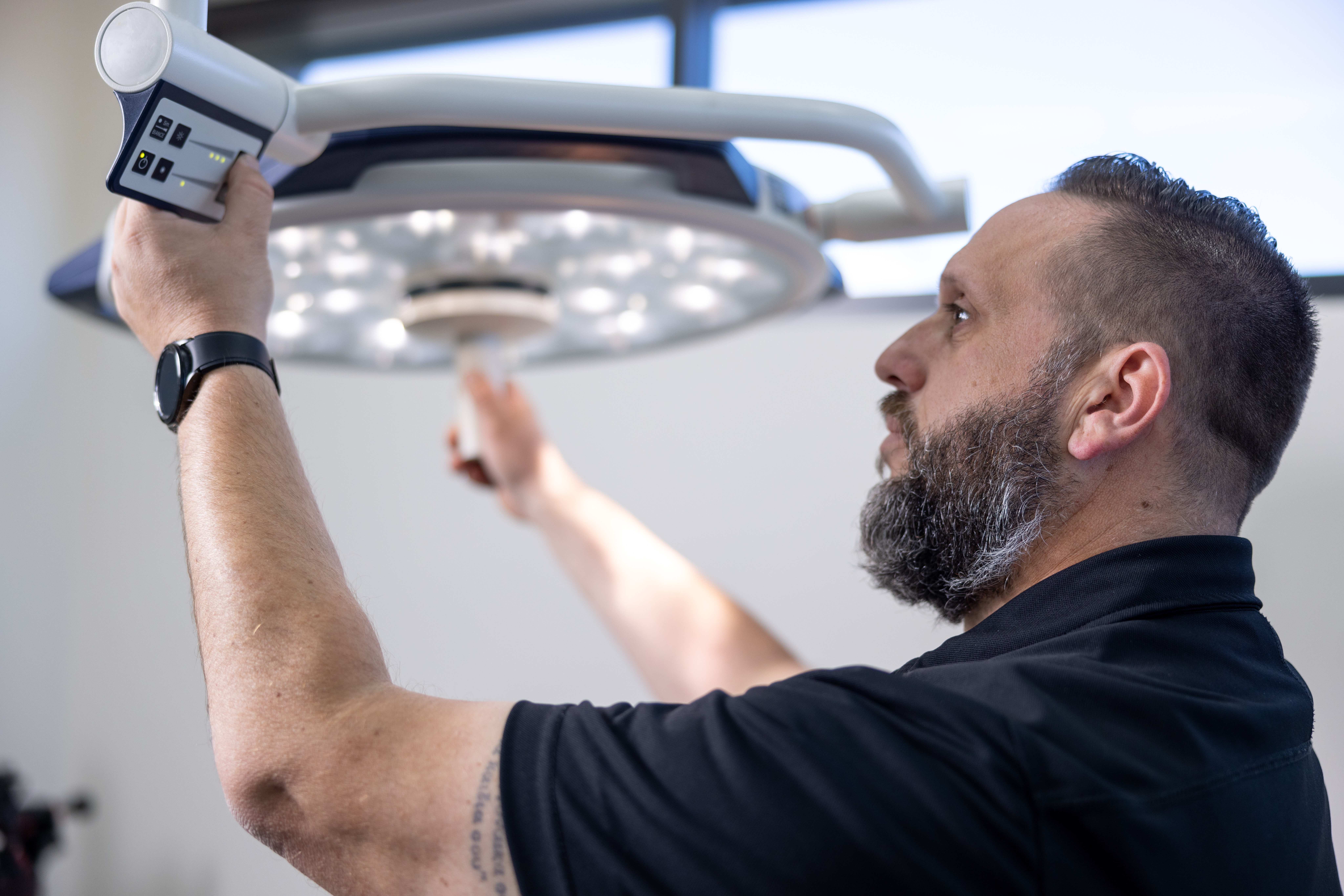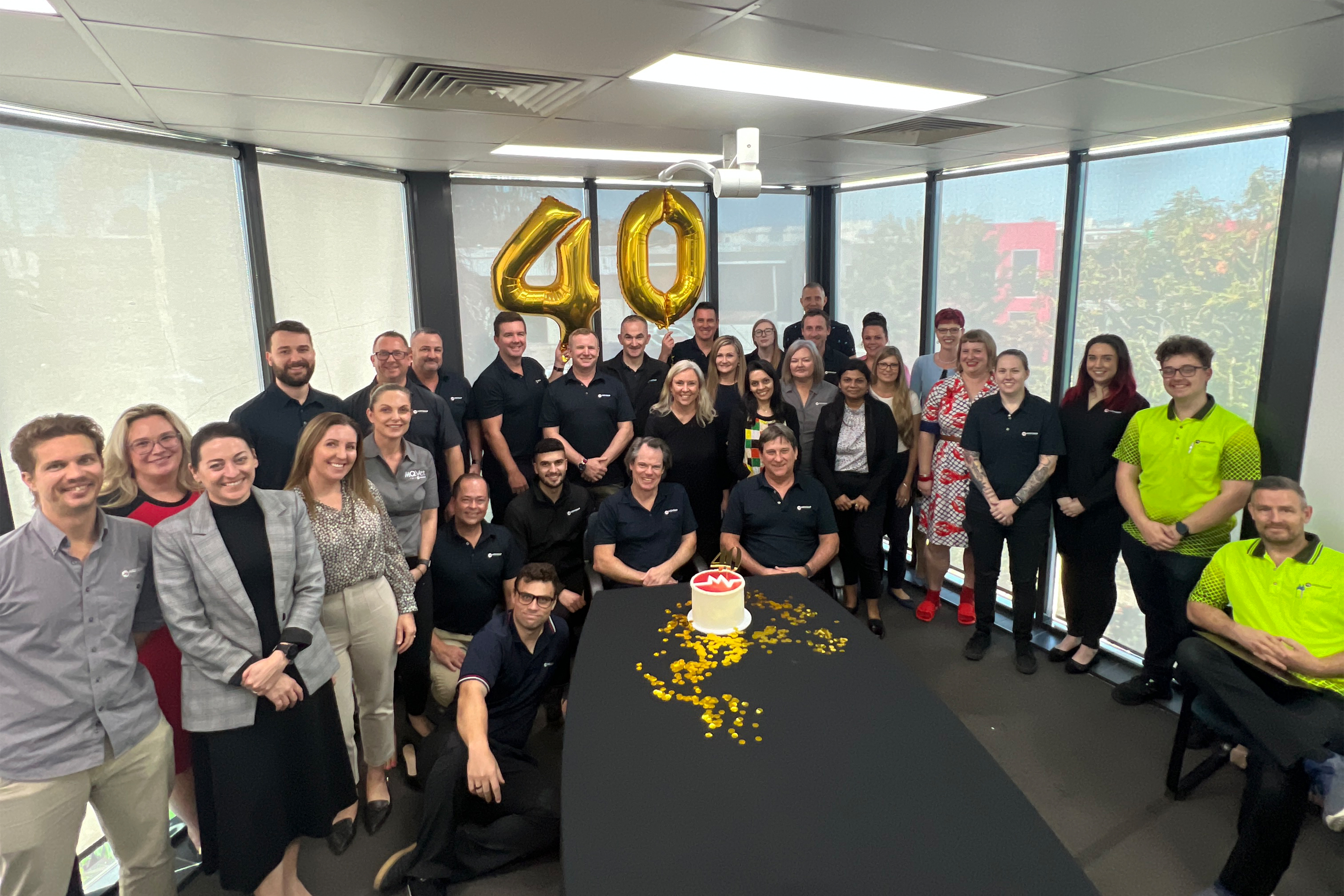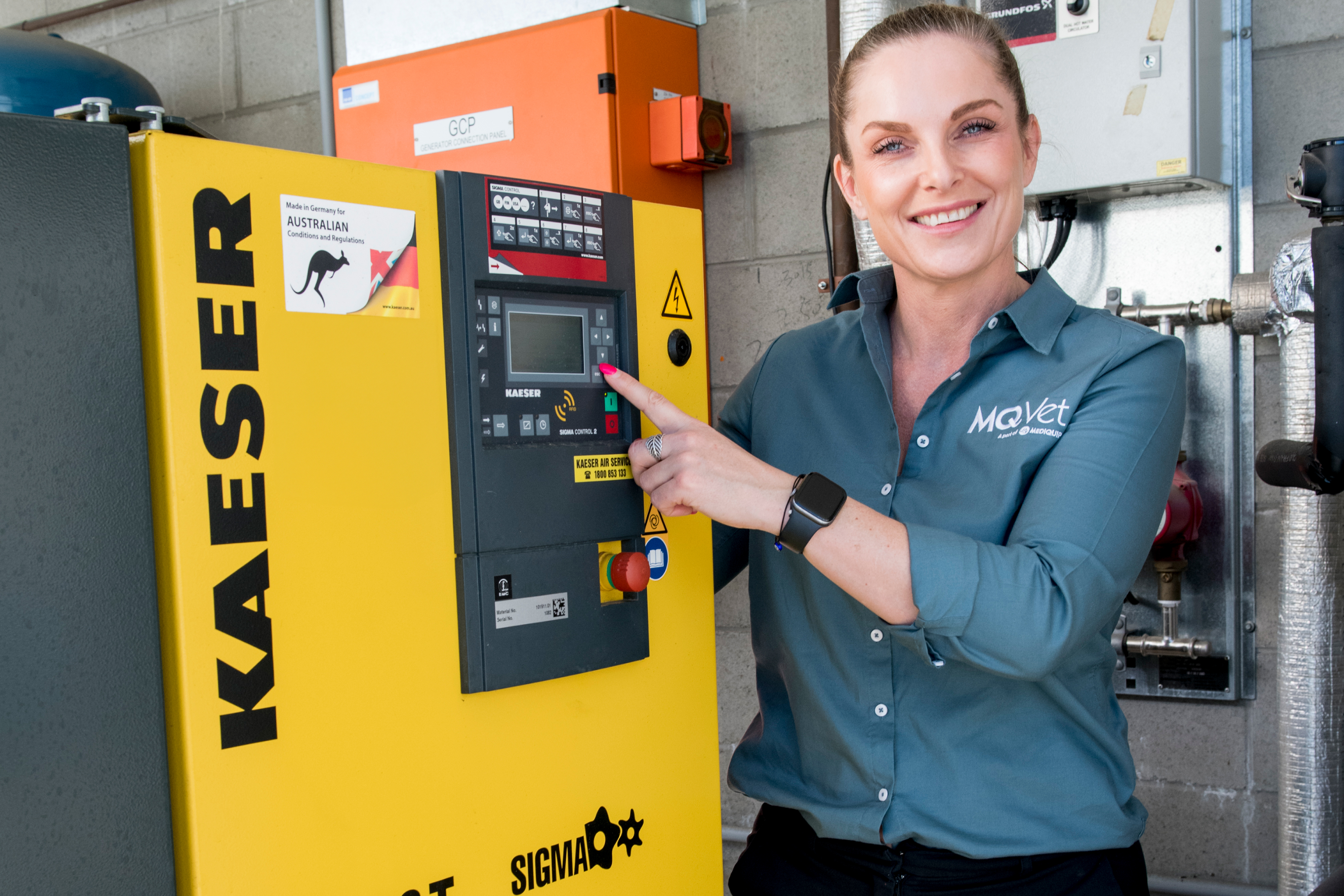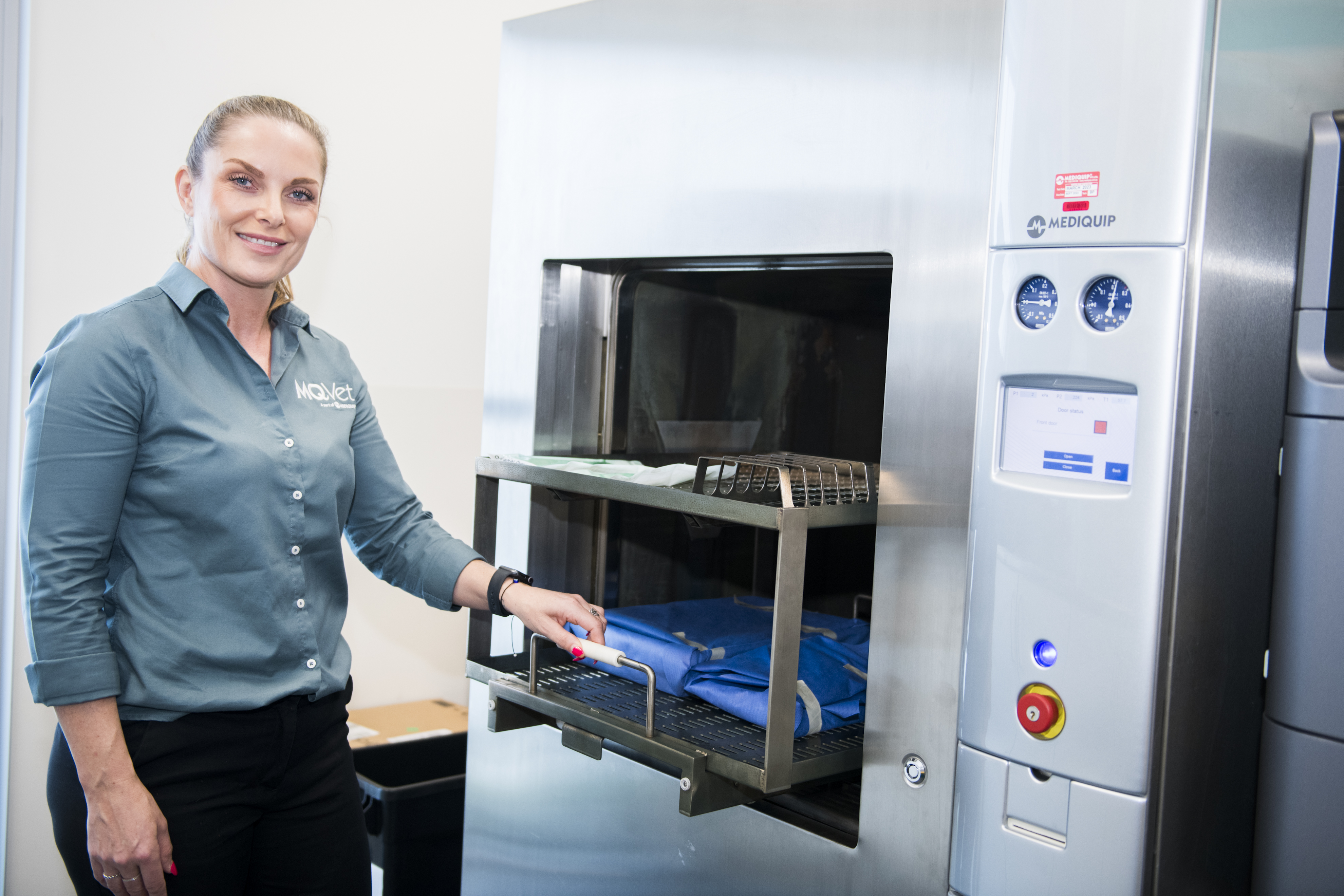Veterinary Lighting Tips
Whether it’s veterinary lighting for examination or surgery, there are a variety of important considerations the MQ Vet team often talks through with vet clinics looking at medical lighting options.
These include the size and layout of the clinic space, ceiling height and building construction, the types of procedures performed at the clinic, and budget.
When recommending medical lighting for veterinarians, the team looks at distance, colour, temperature and distribution of light, to ensure the lighting meets the specific needs of the area or task.
Lux, which measures the amount of light that falls on a surface per unit of area, is a crucial factor when designing lighting for a specific space. Another consideration is colour temperature (K) − a measure of the warmth or coolness of a light source.
Light field diameter indicates the size of the light field from the centre of the light with the highest intensity, to the point where only 10 per cent of the maximum light intensity can be reached.
Avoid drift: solid lighting construction with positioning brakes avoids undesired movement, and also allows for quick and easy repositioning.
Perspex can have the problem of crazing over time, so the lights MQ Vet supplies from SIMEON Medical feature scratch-proof monolayer safety glass.
Shadowing can cause hassles. The reflector shadow resolution system of SIMEON LED lights ensures 360 degree illumination onto the examination area, meaning light without shadows.
Consider energy consumption and the amount of heat the lights may give off. Not all LEDs are the same − older LED technology has to work harder. SIMEON lights’ aluminium LED rack ensures maximum energy efficiency with optimum heat dissipation.
MQ Vet’s fit out and project management team continues to deliver a variety of lighting projects for vet clinics across Australia, using German-made SIMEON surgical and examination LED lights.
The MQ Vet / Mediquip team offers planning and consultancy, plus installation and servicing of veterinary lighting.
With training and support direct from the manufacturer SIMEON, our field service engineers work to ensure the lights are well positioned, at the right height, levelled, balanced, easy to move, and so they stop where they’re placed and don’t drift.



.png)

